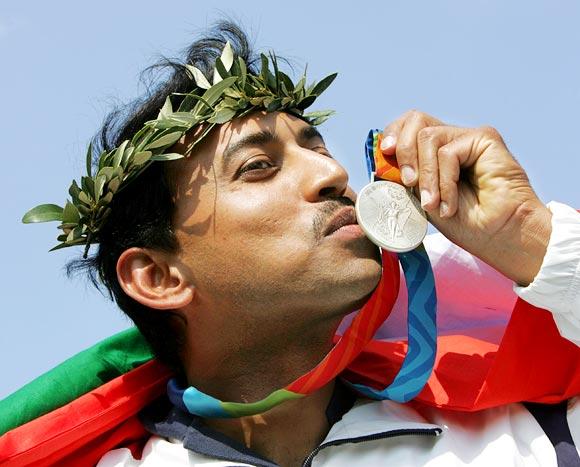
Eight years ago Rajyavardhan Singh Rathore was the cynosure of all eyes when he won the silver medal at the Athens Olympics; today he sits on the crossroad, says Harish Kotian.
August 17, 2004, was a watershed day for Indian shooting. Rajyavardhan Singh Rathore, a major in the Indian army then, gave the nation reason to celebrate as he won a silver medal in men's double-trap shooting at the Olympic Games in Athens.
That was the only medal India won at the Athens Games; overnight, Rathore became the darling of the nation and pride of the Indian army.
- Exclusive! I could see nothing else but the target: Rathore
Before Rathore's monumental feat no Indian had won an individual silver medal at the Olympics. India's best achievements before that were individual bronze medals for Khashba Jadhav, in the 1952 Helsinki Games; Leander Paes at Atlanta in 1996; and Karnam Malleshwari, in Sydney 2000.
Rathore's silver served as a springboard for Indian shooting and the sport underwent a huge transformation thereafter. Not only did facilities for the shooters improve, but a lot of changes took place at the ground level too. In a couple of years, Indian shooters were names to reckon with.
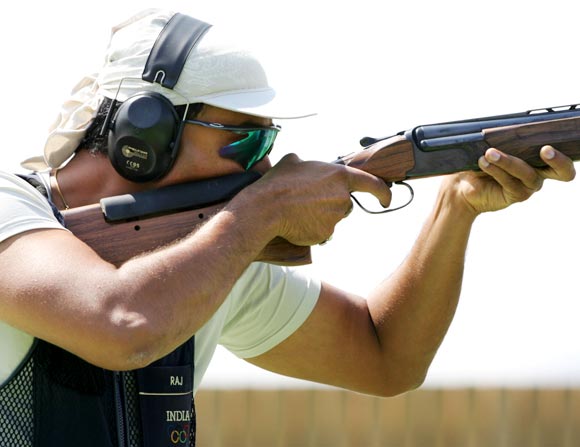
When Abhinav Bindra won the gold medal at the 2008 Beijing Olympics, few were surprised as they were when Rathore bagged the silver four years back. That's because Rathore had to contend with a lot of hardship en route to his silver medal; his was a triumph against all odds.
Things were not easy back then when the ace shooter prepared for the Games. A lot of sacrifice and hard work went into his feat, and despite not having the best of facilities and support, he never complained because all he could see at that point was his target: an Olympics medal.
Post 2004, Indian shooters did not have to slog as much as Rathore. Thus, it wouldn't be wrong to say that the armyman was the architect of Indian shooting's vision for the future.
But even as the fortunes of India's shooters soared, things did not go to plan for Rathore. He failed to qualify for the finals, after a poor opening round, at the Beijing Olympics. That prompted him to take a year off in 2009, prompting many to wonder whether he was contemplating giving up the sport.
He returned in 2010, but, again, found the going tough, as he failed to make it to the Indian shooting team for the Commonwealth Games in Delhi and Asian Games in November that followed the same year. He also had his differences with the federation National Rifle Association of India (NRAI) over alleged unfair selection policies which hampered his comeback.
An example how unfair the federation was being to some shooters can be known by the fact that the new policy was shown to all the shooters in March, but was applied in retrospect from January, wherein all scores of the shooters were known to the federation. Therefore, it was but natural that Rathore felt victimized, though he preferred to fight it out through his performances.
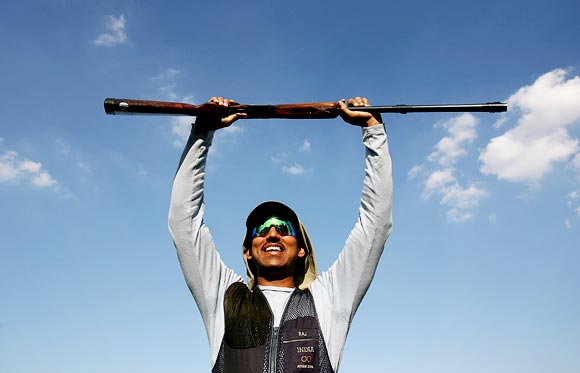
The ace shooter did not take part in any competition in 2009-10, but started competing again from 2011 in a bid to peak in time for the London Games. But, yet again, he was given a raw deal, and not enough opportunities, as he was in and out of the Indian team in 2011. Nevertheless, despite the limited opportunities Rathore won three gold medals.
Rathore put his feelings down on his blog (https://chillyrathore.blogspot.in) explaining a few points on the NRAI's controversial selection policy.
'Basically -- our previous selection policy was -- selection trials are held for competitions in the forthcoming 2 months calendar (and if someone has won a medal in the immediate past or had an exceptional performance then he is excused from trials, if he so desires with permission of Federation)
'Hence after taking 2009 off I planned to start training by Jan 2010 and be in form by Jun 2010 for World Shooting Championships (WSC) 2010.
'However in Mar 2010, we got stumped by the Federation when they announced a new selection policy. The new policy was to follow a system of adding up all scores shot by shooters and averaging them out. The highest aggregate gets selected,' he wrote on his blog in August 2010.
'I have tried to maintain as positive an attitude as is possible, even today as the news is breaking out on the TV and other media. I do believe there is a higher good for me despite these troubles,' he added.
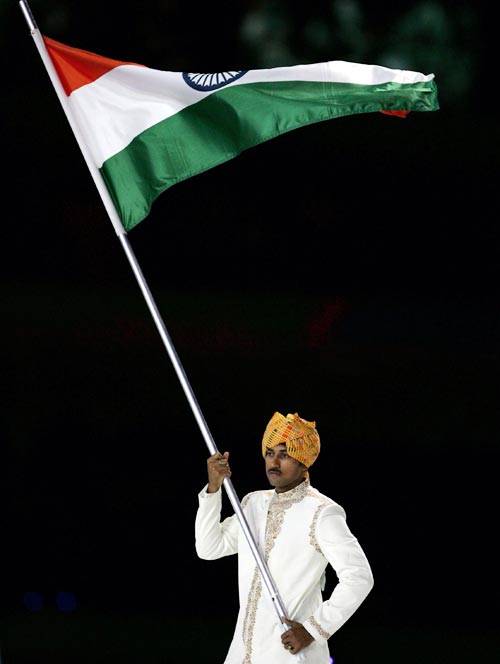
True to his word, he maintained a positive outlook, and made a remarkable comeback in 2011 as he set his sights on making it to his third successive Olympics.
He stormed his way to a world record en route to winning a gold medal in the Asian Shotgun Championship in Kuala Lumpur last November. But, again, Lady Luck deserted him as he narrowly missed the Olympic quota after having to compete in tough windy conditions at the Asian Championships in Doha, which was the final qualifying event for the London Olympics.
His only chance after that was the one quota place that India had. But, strangely, Rathore's name did not go beyond the discussion stage in the selection meeting for the London Games.
A source in the NRAI told Rediff.com, on condition of anonymity, that there are two camps within the association, and Rathore's absence of support from the reigning members of the current federation may have affected his chances.
"Also, another factor is that Rathore has been quite vocal about problems with the sport in the country, like he did with the new selection policy, and the federation does not take kindly to people who are so open with criticisms.
"So if they had picked him and he had managed to win a medal at the London Olympics, he would have become powerful if he took on the members of the NRAI then; so, maybe, they clipped his wings before that could happen.
"Else, how could you explain his non-inclusion while some other rookie shooters, who have not even won gold medals at big events, forget the Olympics, get the chance to be at the Olympics," the source added.
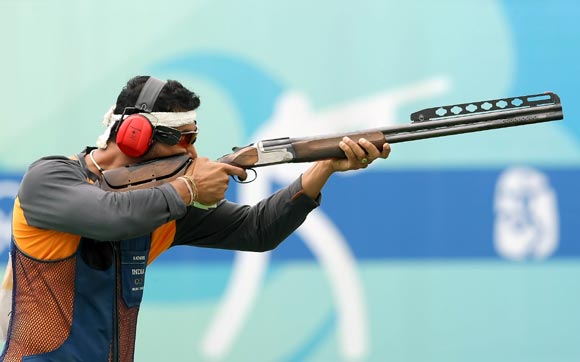
As per the International Shooting Sport Federation rule, a country is allowed to exchange one quota won by its shooters with another, subject to its availability and confirmation by ISSF.
Even shotgun coach Marcello Dradi had called for Rathore's inclusion in the squad.
"Rathore is a world class shooter and I think by having him in the squad India will have more chances of winning an Olympic medal. I want him in the squad but the final decision is in the hands of the selectors," said the Italian shotgun (trap) expert.
The governing body, however, defended its decision.
"The decision was unanimous. We looked at who is a better prospect and who can win medals," said NRAI advisor Baljit Singh Sethi after the selection.
No one can guarantee a medal at the Olympics, but someone who has been there and done it has a better chance than one who is yet to compete on the big stage.

Shooting requires a lot of mental toughness; the more the experience, the better. So, all the more, reason to consider Rathore for London.
Rathore, meanwhile, prefers not to comment on the issue.
"Talking about something that is past and is not in my hands will only bring in more negativity. The situation is out there in the open and everyone is aware of what has been going on," he told Rediff.com.
Eight years ago he was the cynosure of all eyes; today he sits on the crossroad. Colonel Rajyavardhan Singh Rathore has seen many a battle, gone through tough times. Like always, one is sure he will come out stronger and better!